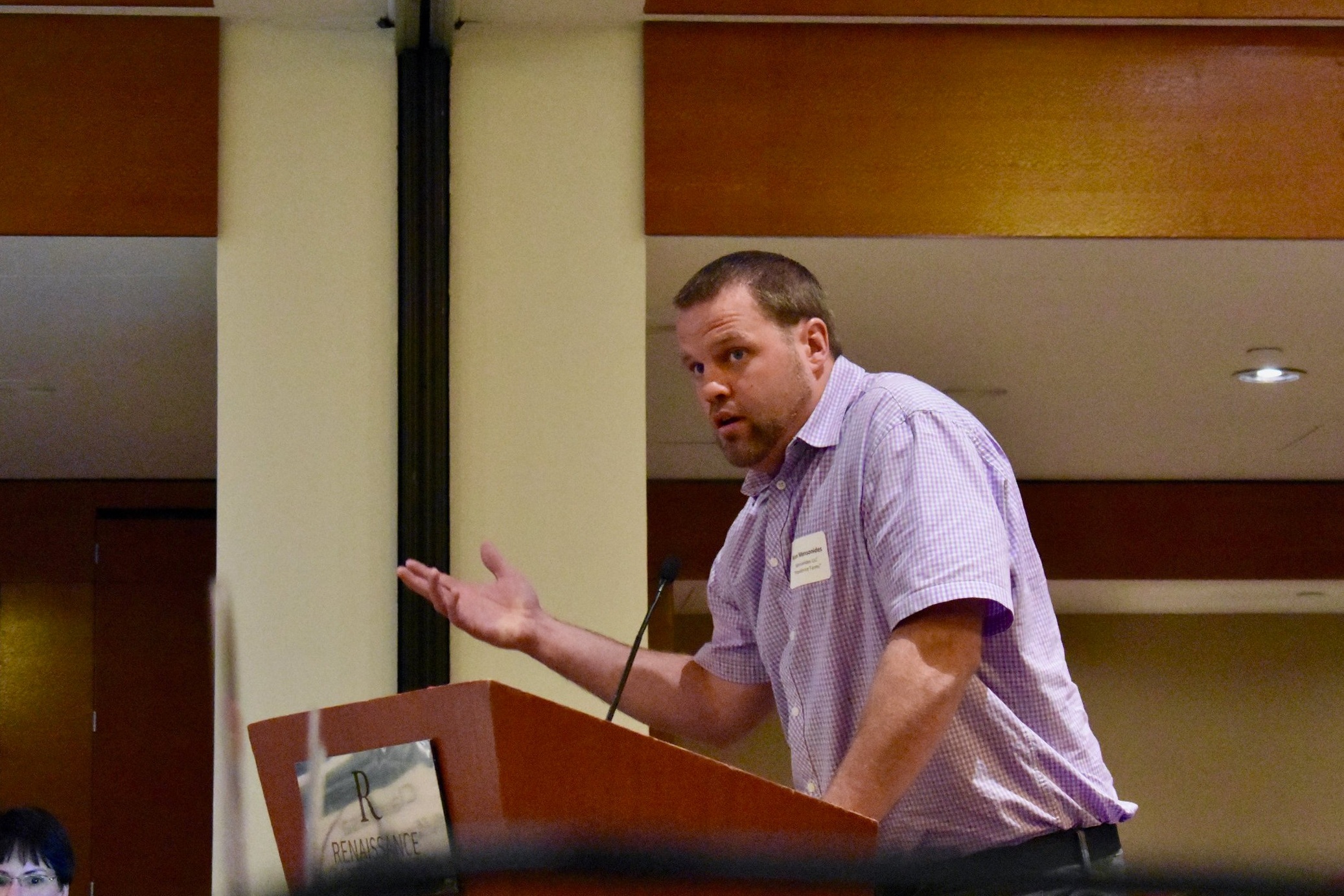Highlights from the Seattle National Organic Standards Board Meeting
NOC staff and members have just returned from the Seattle National Organic Standards Board meeting. Here are a few highlights from the meeting.
1. Organic dairy farmers showed up in large numbers with a plea to the USDA National Organic Program and the organic community to restore fairness in the organic dairy sector.
“Last year I lost $150,000. We have an oversupply of milk. I've got 4 employees, a disabled father, 4 kids, a house, a wife...this is what I will lose if you don't follow through with a rule on Origin of Livestock in organic.” Ryan Mensonides, organic dairy farmer.
2. At the NOC Pre-NOSB Meeting, a panel of organic leaders laid out their top three priorities to advance organic integrity. Panelists acknowledged that the USDA organic program is failing to deliver on its promise of consistency across certifiers and organic operations. They expressed a high degree of alignment in the priorities they identified.
Kate Mendenhall, Director of the Organic Farmers Association, talked about the need to stem the flow of fraudulent imports, concerns about enforcement in the dairy sector, and opposition to organic certification of hydroponic production. In her testimony to the NOSB, Kate stated: “This kind of ambiguity on hydroponics and the lack of a 3-year transition period leaves a lot of discontent” and asked the NOSB to support a moratorium on certification of new hydroponic operations given the lack of clarity.
Laura Batcha, Executive Director at the Organic Trade Association, talked about OTA’s work to prevent import fraud, including a private sector fraud prevention program, work on livestock enforcement issues, and ideas to solve structural problems that limit the effectiveness of the public-private partnership and result in inconsistent application of the organic standards. In her testimony to the NOSB, Laura stated: “There is an urgent need for instructions on how to apply practice standards to hydroponic and container systems”. She also shared ideas with the NOSB about new structures and procedures that could drive consistency in how organic standards are interpreted and applied.
Abby Youngblood, Executive Director at the National Organic Coalition, talked about the need for consistent enforcement in organic dairy and the negative economic impact on organic dairy producers, import fraud and gaps NOC has identified that still need to be addressed, and ways to strengthen oversight of the USDA National Organic Program accreditation system. In her testimony to the NOSB, Abby stated: “The lack of consistency across certifiers points to serious problems in the NOP accreditation process” and she called on the NOSB to pay closer attention to problems identified in the annual peer review audits.
3. Dr. Jenny Tucker, the head of the USDA National Organic Program, responded to numerous questions about new regulations on Origin of Livestock (the rules for how conventional dairy cows are transitioned into organic herds), as well as questions about hydroponic and container systems and the spraying of prohibited substances.
On Origin of Livestock, she stated: We are grateful for NOSB’s and organic stakeholder interest in this rulemaking. A lot of letters have come in. The Agricultural Marketing Service (AMS) at USDA is exploring having a second Origin of Livestock Proposed Rule on the Fall 2019 regulatory agenda. We have gotten a lot of feedback about whether or not we need to have a new proposal, and this will be taken into consideration.
On hydroponic and container production, she stated: Over three administrations it has been clear that hydroponics and container growers are allowed. We are and will continue to use the organic regulations to oversee and certify these operations. Glyphosate is not allowed in organic production. All organic operations must demonstrate compliance with the regulations. This includes that no prohibited substances have come into contact with the crop. We are learning more and we are open to feedback. The provisions related to soil in the organic regulations apply to soil-based operations.
When asked if hydroponic and container systems must undergo a 3-year transition period, she stated: There are questions about the land requirement and regs at 205.202 for container and hydroponic operations. I think that has been raised through some of the recent questions about how should certifiers consider that land history. In urban ag, you have a greenhouse that is built on the roof of a building – there is nothing to transition. I think those are the types of policy questions that need to be carefully looked at and we need to understand what is happening on the ground.


